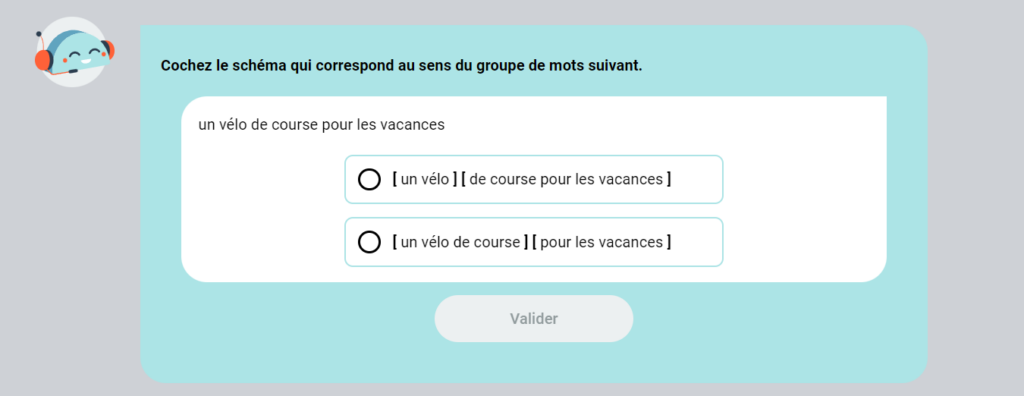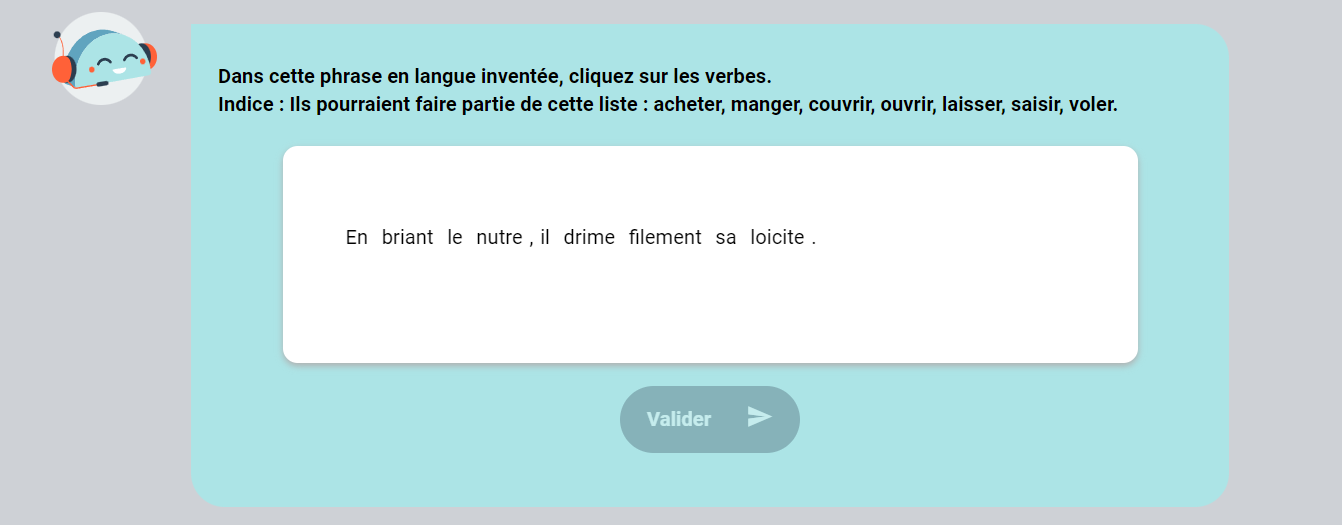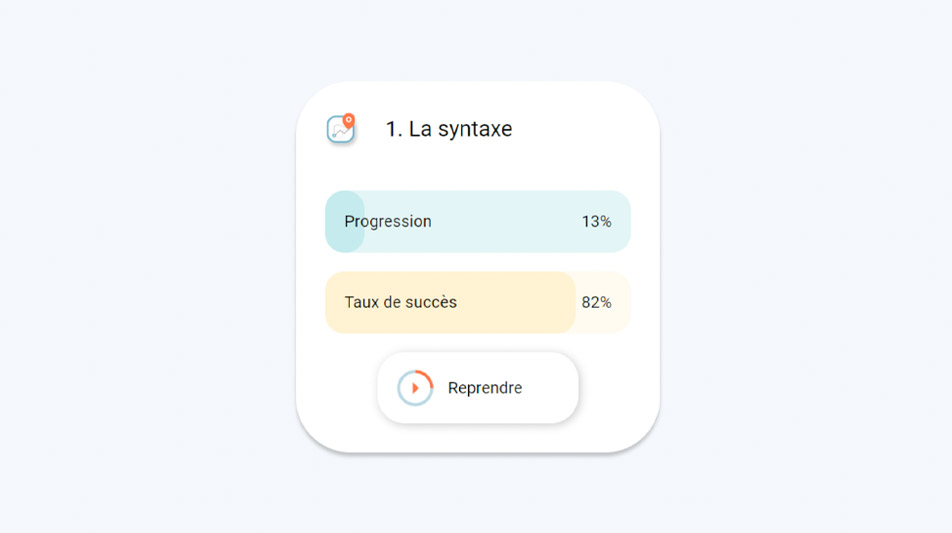A metalinguistic reflection based on an intuitive practice of the language
The idea behind the creation of the exercises is to accustom the student to making metalinguistic reflections and to lead him to pay attention to certain aspects of the sentence: for example the fact that the sentence is formed of groups of words that behave like single blocks, or that there are precise links between these groups that have effects on their form as well as on their position. Thanks to this kind of mental gymnastics, the student is able to deduce, or at least sense the rules governing the construction of the sentence of standard French, without necessarily having received prior explicit instruction. The student is thus predisposed to appropriate the rule, which will not be received passively at the time of its explicit presentation in class.

Transfer between linguistic and non-linguistic cognitive modules
The proposals of these modules are notably inspired by the recent observation that the (unconscious) linguistic competence of speakers is linked to cognitive processes involved outside of language. For example, it has been shown that speakers trained to analyze simple arithmetic formulas can, in a certain way and without even being aware of it, “transfer” this analysis when they analyze sentences with a certain structural complexity. Thus, by organizing back and forth between linguistic objects and pseudo-mathematical objects, we offer students the possibility of relying on their non-linguistic skills to approach the language.

Relation to the norm
Linguists have known for a long time that it is not because people express themselves in a dialect far from the reference norm (“young people’s speech”, “popular language”, slang, etc.) that these people do not respect a “grammar” that governs this dialect. In other words, it is not because we do not speak like on the television news that we can say anything. Some of the proposals in these modules are inspired by this observation: the aim is to make students aware of the fact that when they express themselves in a non-standard way, they are not necessarily expressing themselves in an ungrammatical way. This allows them to better understand the link between these non-standard forms and the forms that correspond to the reference French, and to appropriate the latter.

Adaptiv’Langue: Lisa Brunetti, CNRS- Université Paris-Diderot; Carla Soares-Jesel, CNRS-Université Paris-Diderot (EvidenceB)
Adaptiv’Langue Plus: Pascal Amsili; CNRS-ENS-Paris 3; Lisa Brunetti, CNRS- Paris-Diderot University; Carla Soares-Jesel, CNRS-Université Paris-Diderot; Marie Candito, CNRS-Université Paris-Diderot; Lucie Barque, CNRS-Université Paris-Diderot (EvidenceB)
Also read:

